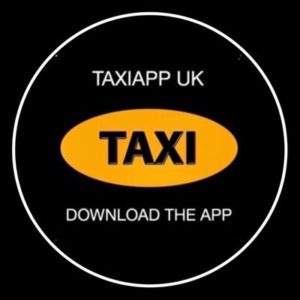Liam Griffin interview: Director of taxi firm Addison Lee on the battle against the mobile phone cab apps
by News Desk | Oct 6, 2014 | London News

Liam Griffin has only just got the new iPhone and hasn’t had time to reorganise his apps.
His “taxi” folder has disappeared, littering his home screen with icons. “Dial-a-Cab, KabX, LeCab, JumpIn.” He reels off names. “Kabbee, Drivr, GroundLink… I did have Hailo, where’s it gone…? Story of their life – they’ve disappeared from my phone.”
The apps jostle for space, fighting to be tapped in a global war for fares that is at its fiercest on the streets of London. There is the Addison Lee icon, too, but one app shouts loudest. As Griffin steers his old man’s firm, founded with one car in 1975, to New York (and, he hopes, a billion-dollar sale), he could be excused for not wanting even to utter its name.
“Uber?” he asks. “I’ve probably used it three or four times. I think you have to see what the competition is up to.” What did he think? “Erm, it’s a perfectly good minicab service. It’s not by chance that they’re being successful. But I don’t think it’s got the quality we have. Would any of their drivers qualify to come and work for Addison Lee? Probably not.”
Fighting talk, but it’s hard not to think that Griffin must lose sleep up in his Hertfordshire mansion, from which he drives to Add Lee HQ near Euston in a Mercedes G-Wagen (his personal fleet also includes a Ferrari). Uber has rocked an already cut-throat industry, mostly riling black-cab drivers, who staged their latest London sit-in last week. Yet they and Griffin appear powerless to slow the slick, loaded, Silicon Valley giant, which now operates in 200 cities.
Griffin, 41, lives with his wife, Clare, and their three young sons. They met at Loughborough University, where he studied economics, played football and raced cars. On Tuesday, he sits in the back of one of his 4,500 Ford Galaxies and fires up his own app, which he launched in 2009 (the company was also the first to send texts to announce the arrival of cars). “It does amuse me that we don’t get mentioned in the same breath as these dot-com disruptors,” he says. “The truth is, we’ve been doing exactly the same for far longer and far better.”
Today’s journey takes us from head office to West Hampstead, where John Griffin, who stepped down as chairman this year, opened a north London satellite in the mid 1980s (it’s now an estate agent). Liam spent school holidays here, dropping minicab cards through letterboxes. In 1996, he joined the firm full-time, when the company still had only 200 cars, and worked his way up, turning Addison Lee into London’s biggest private operator.
Uber appears to pose such a threat because, controversial tech aside (black-cab drivers insist that Uber relies on metering, which only they are allowed to do), it’s cheap. If I wanted to go home now, Add Lee would charge £22.30, less than a black cab but more than Uber’s “£12-16”. Yet Griffin claims that the upstart startup has accelerated his own growth. How?
“They have highlighted on-demand taxi services as a travel option that wasn’t at the forefront of everyone’s mind before,” he says. “Now it is and more people are using us.” Revenues (almost £200m a year) have continued to grow throughout the past 12 months, he adds.
Last year, the Carlyle Group, an American private equity firm, bought most of Addison Lee for a reported £300m. It is now ready to cash in on the growth. Rumours circle of an imminent £800m sale, which would require global expansion. Next up: New York, where Addison Lee today launches a franchised service for its biggest clients. If the deal works, which it must, Griffin, already a very rich man, will deploy his cars there and beyond.
In the company’s control room, a screen shows a map of London obscured by dots, a galaxy of Galaxies. Another displays a spreadsheet of jobs, including pick-up addresses. Someone healthy and ethical has ordered a Prius from a Virgin Active in Hendon, but the big jobs today are the corporate accounts – Saatchi & Saatchi, GlaxoSmithKline, Bain Capital – that pay more, and whom Uber has yet to woo. But Uber is wooing and winning everyday fares like me. It is in this market, I suggest, that Addison Lee has an image as well as a price problem. Two brouhahas that engulfed it in 2012 didn’t help. First, John Griffin skirted the law when telling his drivers to invade bus lanes. Then he appeared to round on cyclists, many of whom already hate the company’s driving style, eventually triggering a “die-in” outside head office.
The company also has a rather macho, functional image – the IBM to Uber’s Apple, perhaps (BA to Uber’s Ryanair, Griffin suggests). It doesn’t help that it employs just 16 women among 4,500 drivers (well under half a per cent compared with the industry’s 6 per cent. Griffin says he has tried hard to improve this). In May, in a sign of how dirty taxi wars have become, it was accused of deploying aggressive tactics by cancelling ITN’s account in the middle of local elections night, one of the news group’s busiest days. Why? Because it was about to jump into the back seat with Green Tomato, a rival taxi firm. “There’s history there,” Griffin says. “Three times, ITN had left us in the proverbial. On each occasion, they’ve gone to somebody cheaper, who inevitably go skint, and who we inevitably buy. When we got wind that they had agreed to go to Green Tomato, we pulled the plug the day before. It was purely coincidence that it was election night.”
Griffin, who is mostly urbane and restrained in a way that his father was not, says that he advised against the bus-lane stunt, meanwhile, although he is still pushing quietly for access. His drivers now receive cycle training, he adds, agreeing that it is in his interest to play nice. “Barclays, one of our biggest customers, sponsors Boris Bikes, so coming out and criticising cyclists wasn’t wise,” he says. Did it get him into trouble? “I certainly got a phone call.”
He is now poised to launch a new ad campaign as he tries to keep pace in a market that has unexpectedly become cool. For now, black cabs remain his biggest rival. When he hails one (“There will always be times that people want to just stick their hand up,” he says), he asks them to drop him off round the corner. “I might not get back here to the office if I gave them the address,” he says.
Perhaps unsurprisingly, he supports their war on Uber. “For the first time, we’ve got a common enemy,” he says, before darting up to his office, furiously tapping away at his phone.















Recent Comments